Apple Watch Series 2: Specs, straps and all you need to know
Apple is refreshing its smartwatch with three new features. Here are the details.
A free daily email with the biggest news stories of the day – and the best features from TheWeek.com
You are now subscribed
Your newsletter sign-up was successful
Apple Watch: what to expect from tonight's launch
09 March
Apple has capitalised on its ability to revolutionise markets to become the world's most valuable company. From the Macintosh to the iPhone to the iPad, the Californian tech giant has had huge success with segment-defining product launches over the course of its 30-year history.
But can the company mount a successful launch without its talisman and figurehead Steve Jobs? When it is unveiled officially later today, the Apple Watch will become the first new product launched in the post-Jobs era.
The Week
Escape your echo chamber. Get the facts behind the news, plus analysis from multiple perspectives.

Sign up for The Week's Free Newsletters
From our morning news briefing to a weekly Good News Newsletter, get the best of The Week delivered directly to your inbox.
From our morning news briefing to a weekly Good News Newsletter, get the best of The Week delivered directly to your inbox.
So what can we expect from the device?
What is it for?
One of the great unknowns about the Apple Watch, Wired suggests, is why it actually exists in the first place. "Expect many, many attempts to answer that on Monday", the magazine says.
As well as downloading emails and handling texts and calls, the Watch is expected to have myriad health features, although some of its more interesting health-related functions have reportedly been shelved due to regulatory or technological complexities.
A free daily email with the biggest news stories of the day – and the best features from TheWeek.com
The Watch is also expected to be able to unlock hotel rooms and car doors, in addition to making purchases via Apple Pay.
Further to those core functions, the Watch will be as useful as the software that it runs. Consequently, after delivering his introduction to the device, Apple CEO Tim Cook is expected to hand over to a number of app developers charged with explaining what they are currently working on. "We’ll probably hear from game-makers, news organisations, health-care companies, fitness brands, and a couple of indie developers making clever new tools", Wired suggests.
Other possible features
The Watch is expected to be customisable to allow users to change how the device functions and how it displays information. Apple news site 9to5mac.com reports that a new clock face feature called Monogram has been added to the device that will let users add their initials to the clock face. It will also be possible to add a small red dot to the Apple Watch’s clock to alert you when a new message has arrived. The face can also be set to give stock updates, including current price, point change, percentage change, or market cap.
The Watch has no keyboard, but users will be able to respond to messages by dictating or through a series of pre-set text replies for incoming text messages.
A new function is also expected to be added to maps, allowing users to receive a vibrate notification when it’s time to make a turn when they are using turn-by-turn directions.
How much will is cost?
The Apple Watch is expected to come in 22 variants, including five called Watch Sport, 12 simply called Watch, and another five high-end versions named Watch Edition. At the top end, the watches will be made from precious materials such as gold and sapphires.
When the Watch was first announced back in September, Apple only mentioned a $349 base price (£231), but CNET suggests that the most expensive edition, an 18-karat-gold-and-sapphire-crystal variant, could cost up to $10,000 (£6,619).
To watch a live stream of the launch go to http://www.apple.com/live/ at 10am Pacific Time (5pm GMT).
Apple Watch: anticipation grows as Spring Forward invites go out
27 February
Apple has sent out invitations for an event it's calling Spring Forward, at which the company is expected to reveal more details of the Apple Watch.
The company, which had long been rumoured to be working on a smartwatch, finally showed its hand last September after the launch of the iPhone 6. But it gave away few details, and prototypes shown to the press gave little away.
Now technology journalists believe they will to find out details of the Apple Watch's price and release date at the event, which has been scheduled for 9 March.
That coincides with the clocks "springing forward" an hour in the US as summer time begins – a heavy hint that the event will have some connection with timekeeping.
PC Pro suggests that Apple has timed the event to follow launches from its competition at Mobile World Congress, which end on 6 March. New flagship smartphones are expected from Samsung (the Galaxy S6) and HTC (the HTC One M9).
"With two of its biggest smartphone rivals out of the way, Apple can have the stage to itself and generate enough buzz to drown out the competition and the droves of Smartwatches, like LG's Urbane watch, won't detract from Apple's highly-anticipated wrist jewellery."
Rumours about Apple Watch specs and functionality have been widespread (see below), but solid details have been hard to come by.
Apple Watch: new direction after 'health problems'
19 February
The Apple Watch will not focus mainly on health apps after all, Apple CEO Tim Cook has told the Goldman Sachs Technology and Internet Conference in San Francisco.
Instead, he positioned it as an all-purpose piece of consumer tech, spending most of his presentation talking up the smartwatch's versatility. "One of the biggest surprises people are going to have when they start using it is the breadth of what it will do," Cook said.
When it was first devised, the Apple Watch was intended to be "a state-of-the-art health-monitoring device that could measure blood pressure, heart activity and stress levels, among other things", according to a report in the Wall Street Journal.
It is now clear that almost none of those technologies have made it into the device which will be released in April. "Some didn’t work reliably," the WSJ says. "Others proved too complex."
So what exactly went wrong for the Apple Watch's health monitoring ambitions? According to "reliable insiders" who spoke to the WSJ, it became clear to Apple during a series of high-level meetings with the US Food and Drug Administration that the Apple Watch could not effectively monitor glucose levels without breaking the skin. Nor could it detect stress with any reliability in people with particularly dry skin or hairy arms.
There were also concerns about how the device would be regulated.
Consequently, many planned features for the Apple Watch "have been mothballed for now", Forbes says, though they may be included in future models.
Apple Watch: if sitting is 'the new cancer', is this the cure?
11 February
Smartwatches: a clever technical solution in search of a problem, according to CNN and others. Now Apple CEO Tim Cook seems to have decided what the devices are actually for – his latest comments on the upcoming Apple Watch pitch it as a health device.
Speaking at the Goldman Sachs Technology and Internet Conference in San Francisco yesterday, Cook painted the device's hourly reminders to users to be more active, and its other health-related features, as key selling points, says The Guardian.
Cook went on to claim that his company has the cure for "cancer", or at least the "new cancer".
He told the conference: "If I sit for too long, [Apple Watch] will actually tap me on the wrist to remind me to get up and move, because a lot of doctors think sitting is the new cancer.
"Ten minutes before the hour, it will remind you to move. We have a lot of people using the Apple Watch at Apple, and ten minutes before the hour, suddenly they all get up and move. It took a little to get used to, but it's great."
Naysayers have cast doubt on Apple Watch's potential, predicting it will sell reasonably well, but will not be the market sweeping success that several of the company's other devices have been.
In particular, they point to the news that the device has a very short battery life and will need to be charged overnight, every night. But Cook was "bullish" yesterday, says the Guardian.
He insisted that none of the other smart watches already on the market has "changed the way people live their lives" and said that on its April launch "one of the biggest surprises for Apple Watch will be the breadth of what it can do".
Poking people every hour isn't the watch's only health feature. Forbes reports that an app for the device made by medical tech firm Dexcom will benefit diabetics by displaying the wearer's blood glucose on a graph.
The watch can't do this entirely unaided: Dexcom will sell a tiny monitoring device which is inserted under the skin and is then read by the watch, via a remote handheld device and an iPhone app.
While this is a complicated chain of devices working together, the company says that it will be much more convenient for users to glance at the graph on their wrists than having to fumble with the remote device or iPhone.
The app and devices will be available in the US initially, with no word yet of a UK release. But Apple Watch will carry a host of other health and fitness related functions.
Its sensors will be able to act as a pedometer, working out the calories a user is burning, and the device will also monitor heart rates via the wrist pulse and even count the number of times the wearer stands up each day.
As well as the Activity app – the software responsible for poking people into action – the watch will have an app called Workout which can be used at the gym or outdoors to set goals for working out, running or cycling.
Apple Watch latest: Swatch to enter the fray
06 February
Swiss watchmaker Swatch has announced it will launch its own smartwatch within three months, putting it on a collision course with Apple, whose eagerly-awaited Apple Watch is due to launch in April.
The Guardian says the Swatch product will not provide the range of communications features Apple fans can expect - instead it will be limited to SMS display and notifications of incoming texts and emails to any smartphone it's twinned with.
But the Swiss watch looks likely to have one major advantage over Apple's version: Swatch says it will not require charging. Prospective wearers of the Apple Watch were told by CEO Tim Cook in October: "We think you're going to end up charging it daily. Overnight."
Cook spoke to analysts in a financial earnings call recently, says The Guardian, telling them that development of the watch is "right on schedule - and we expect to begin shipping in April".
There are high hopes for the watch, the paper says, with predictions for sales in 2015 alone ranging from 10 million to 30 million, even though the cheapest model will cost $350 (£230).
But David Goldman of CNN believes the watch will "flop" - at least in Apple's terms, considering that the firm has fans who will queue up to buy anything it produces, and given that it only needs to sell three million to earn $1bn (Apple sold 40 million iPhones in the fourth quarter of 2014).
As well as the short battery life, he cites one big issue: what is a smartwatch actually for? To some it is a clever technical solution in search of a problem.
But while there are questions still to answer about the company's first foray into wearable tech, including how it will interact with an iPhone and how water resistant it will be, the first reviews are mostly positive.
Look and feel
Time magazine's hands-on reviewer, Matt Vella says the Apple Watch is a beautifully designed piece of technology with "enormous potential". In fact, in Vella's view, the watch is "the most exciting gadget since the iPad, from Apple or any other company".
The Apple Watch comes in two sizes, and a wide variety of colours and styles, and optional wrist straps made from leather, synthetic materials and metal. "The devices features a sapphire glass face, is made of stainless steel, and is being touted by the consumer electronics giant as a 'comprehensive fitness and health' companion," says IT Pro.
Most early reviewers agree that both the 1.5 and 1.65-inch versions of the watch feel light on the wrist, and much more like a conventional watch than those produced by Apple's rivals.
"Most smartwatches look clunky or uninspired — just a few rungs above those kitschy calculator watches made popular in the 1980s," says Fortune's JP Mangalindan. "But Apple’s does a good job masquerading as a slick, traditional timepiece. It’s just small and thin enough — even for folks with smaller wrists like myself — and the premium wrist straps provided in the demos feature the kind of materials found in Swatch or higher-end time pieces".
Apple Watch interface
The Apple Watch's interface takes a different approach from its main competitors. The device is navigated not only using Apple's now familiar tap, swipe and pinch-and-zoom controls, but also via the device's "digital crown" – an updated version of a traditional watch crown that lets users set the time. Users can spin the dial to scroll or zoom and double-tap it to return to the home screen, and respond to messages with custom gestures that, to the BBC's Richard Taylor, feel "a little gimmicky".
Whether or not the interface works is still not clear. The Wall Street Journal reviewers Nathan Olivarez-Giles and Wilson Rothman note that demo units handed to reviewers were on a fixed loop, so "we never got a chance to try the digital crown… But, the idea of a touch screen paired with the crown does sound like an improvement over the smartwatch competition, which largely rely solely on finger-swipe interfaces".
Unknown unknowns
For Mashable's Lance Ulanoff there are just too many unknowns at this stage to be able to offer a proper verdict. Apple promises that the device will use a magnetic induction charger, so instead of having to plug it in at night you just take it off and place it on the pad to charge up – but hands-on reviewers were not given a demonstration of the charger in action.
Similarly, Apple says that the watch is water resistant enough to withstand a user washing dishes while wearing it, but that you can't go swimming with it on, leading Ulanoff to speculate whether the digital crown is a weak point for moisture.
The reviewer also suggests that the broad range of applications the device has been put to, including sharing messages, allowing users to respond by text or voice, giving contextual information and almost constantly measuring activities constitute "a lot of heavy lifting" for a wearable battery. "We’ll have to wait until next year to find out real battery life and answer a host of other Apple Watch questions," he concludes.
The Apple Watch at a glance:
- The device integrates with Siri to allow voice-controlled searches and navigation. Users can also dictate replies to messages.
- It will work in conjunction with the iPhone 5S and 5C, as well as both models of iPhone 6.
- The Apple Watch has a touchscreen and a physical wheel on the side, which Apple calls the "digital crown". The wheel lets you zoom or scroll through menus, a little like the click-wheel on the original iPad.
- It will cost $349 plus tax in the US (about £215 plus Vat) and go on sale early next year.
- It can monitor your heartbeat, and even broadcast it to another Apple Watch owner, who will feel it as a series of vibrations.
- In Starwood Hotels you will be able to use your Apple Watch to unlock your hotel room.
- It will come with a range of accessories, "some of which are very classy metal straps", the Daily Telegraph says.
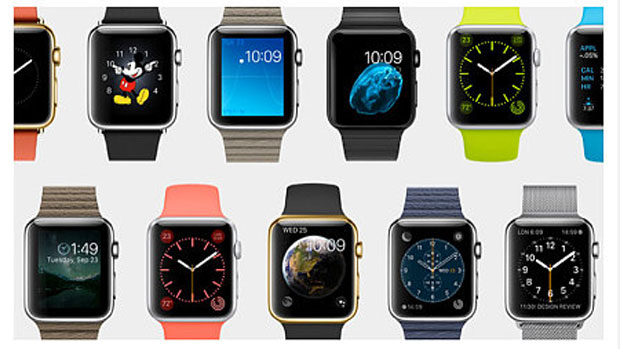
-
 Quiz of The Week: 14 – 20 February
Quiz of The Week: 14 – 20 FebruaryQuiz Have you been paying attention to The Week’s news?
-
 The Week Unwrapped: Do the Freemasons have too much sway in the police force?
The Week Unwrapped: Do the Freemasons have too much sway in the police force?Podcast Plus, what does the growing popularity of prediction markets mean for the future? And why are UK film and TV workers struggling?
-
 Properties of the week: pretty thatched cottages
Properties of the week: pretty thatched cottagesThe Week Recommends Featuring homes in West Sussex, Dorset and Suffolk
-
 Is Apple’s Tim Cook about to retire?
Is Apple’s Tim Cook about to retire?Today's Big Question A departure could come early next year
-
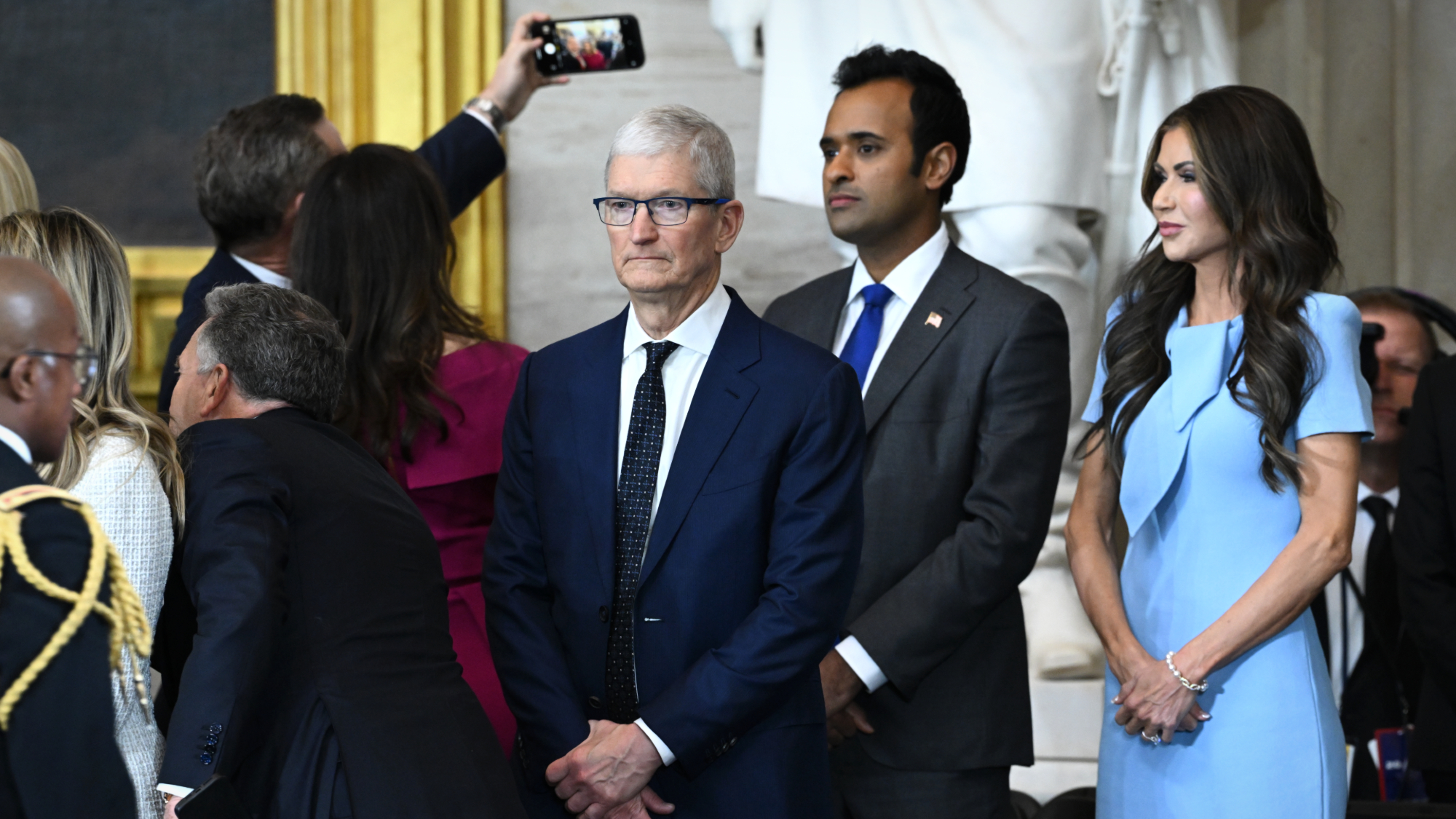 Apple pledges $500B in US spending over 4 years
Apple pledges $500B in US spending over 4 yearsSpeed Read This is a win for Trump, who has pushed to move manufacturing back to the US
-
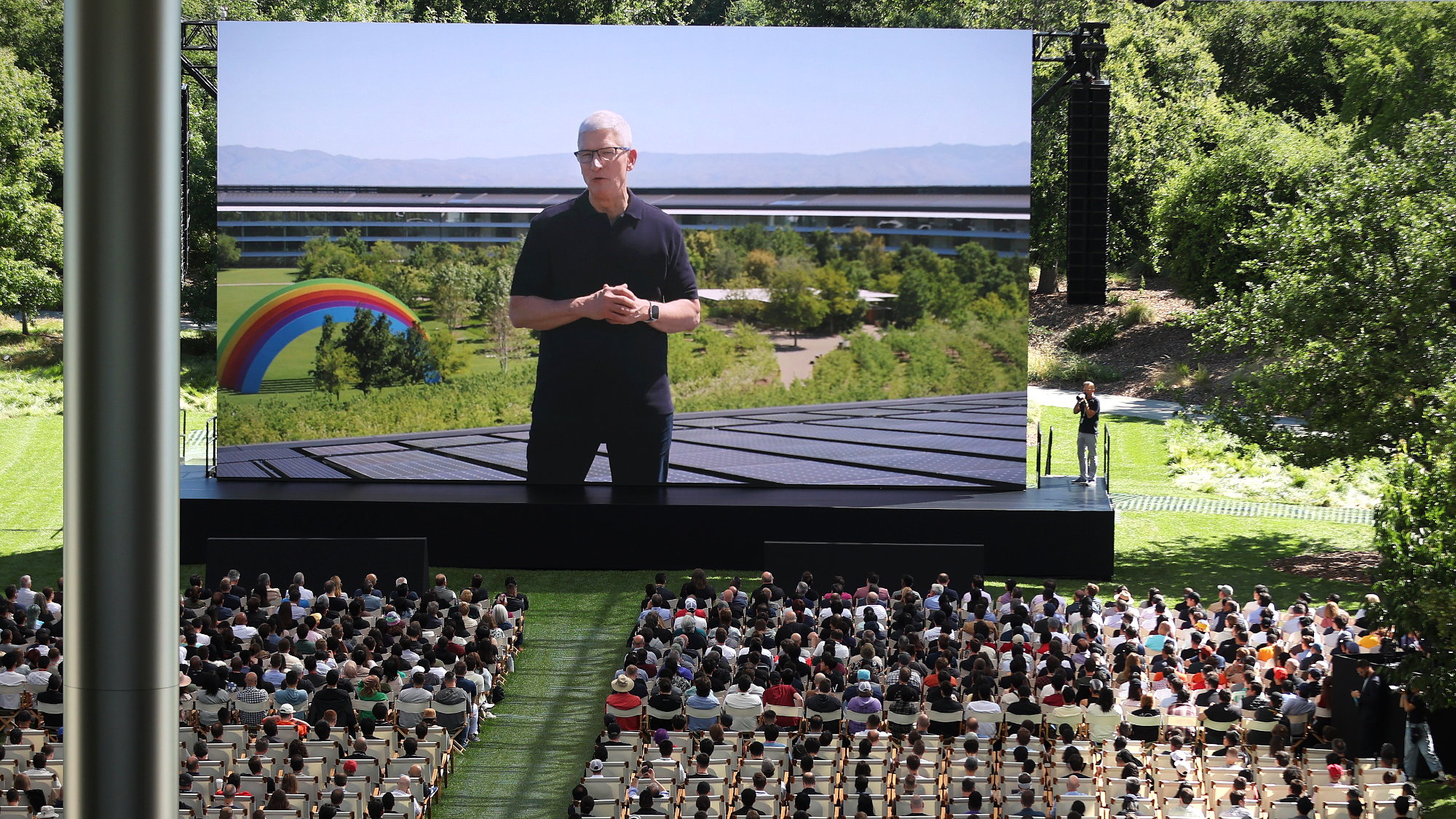 Apple unveils AI integration, ChatGPT partnership
Apple unveils AI integration, ChatGPT partnershipSpeed Read AI capabilities will be added to a bulked-up Siri and other apps, in partnership with OpenAI's ChatGPT
-
 Apple Intelligence: iPhone maker set to overhaul the AI experience
Apple Intelligence: iPhone maker set to overhaul the AI experienceIn the Spotlight A 'top-to-bottom makeover of the iPhone' sees the tech giant try to win the consumer AI game
-
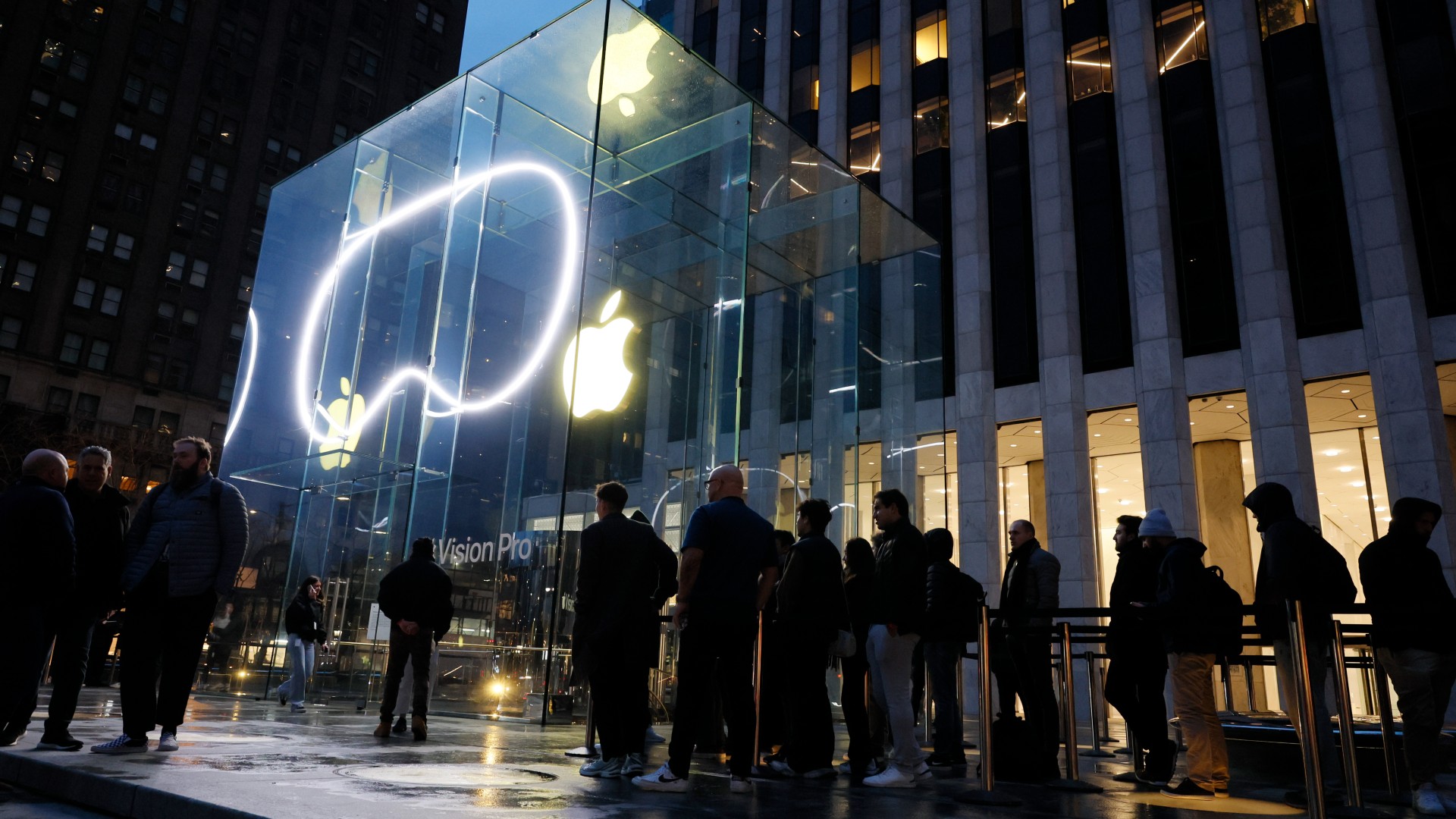 The Apple Vision Pro's dystopian debut
The Apple Vision Pro's dystopian debutIn the Spotlight Is "spatial computing" the next big thing?
-
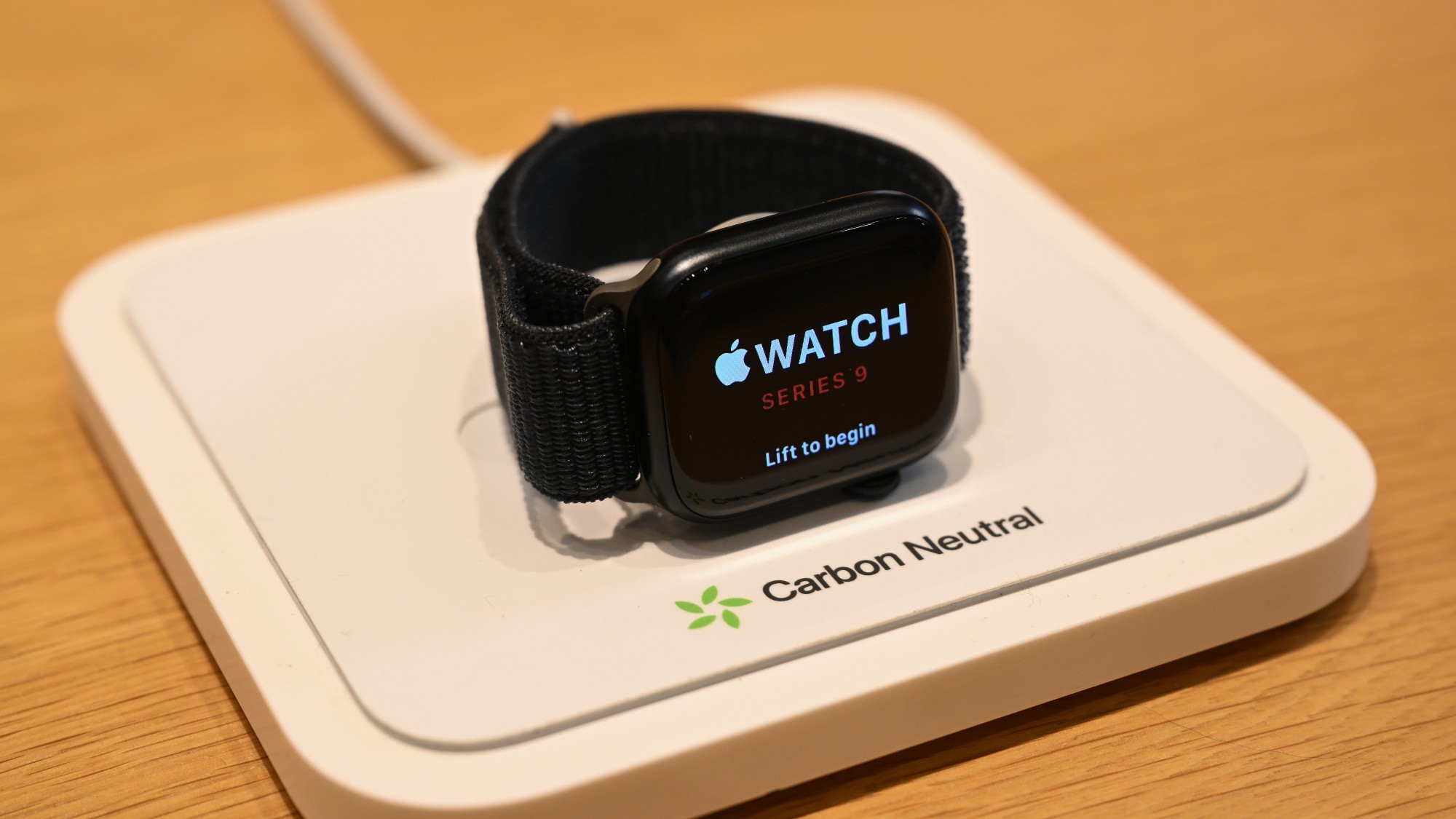 Why Apple's carbon-neutral claims may be misleading
Why Apple's carbon-neutral claims may be misleadingSpeed Read The company isn't disclosing all the information, a new report alleges
-
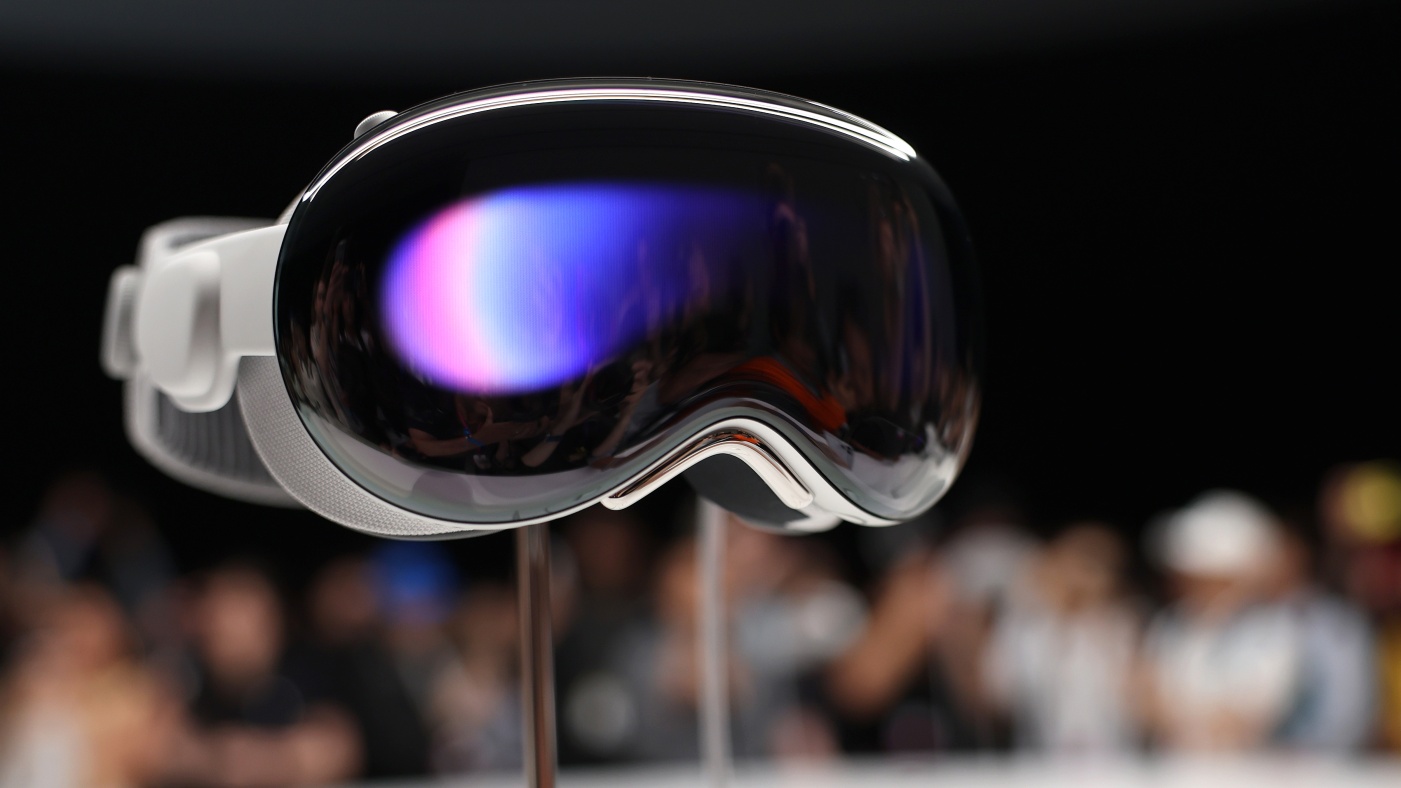 Apple’s Vision Pro: is the VR future finally here?
Apple’s Vision Pro: is the VR future finally here?Talking Point The ‘mixed reality’ headset could redefine how we use personal devices
-
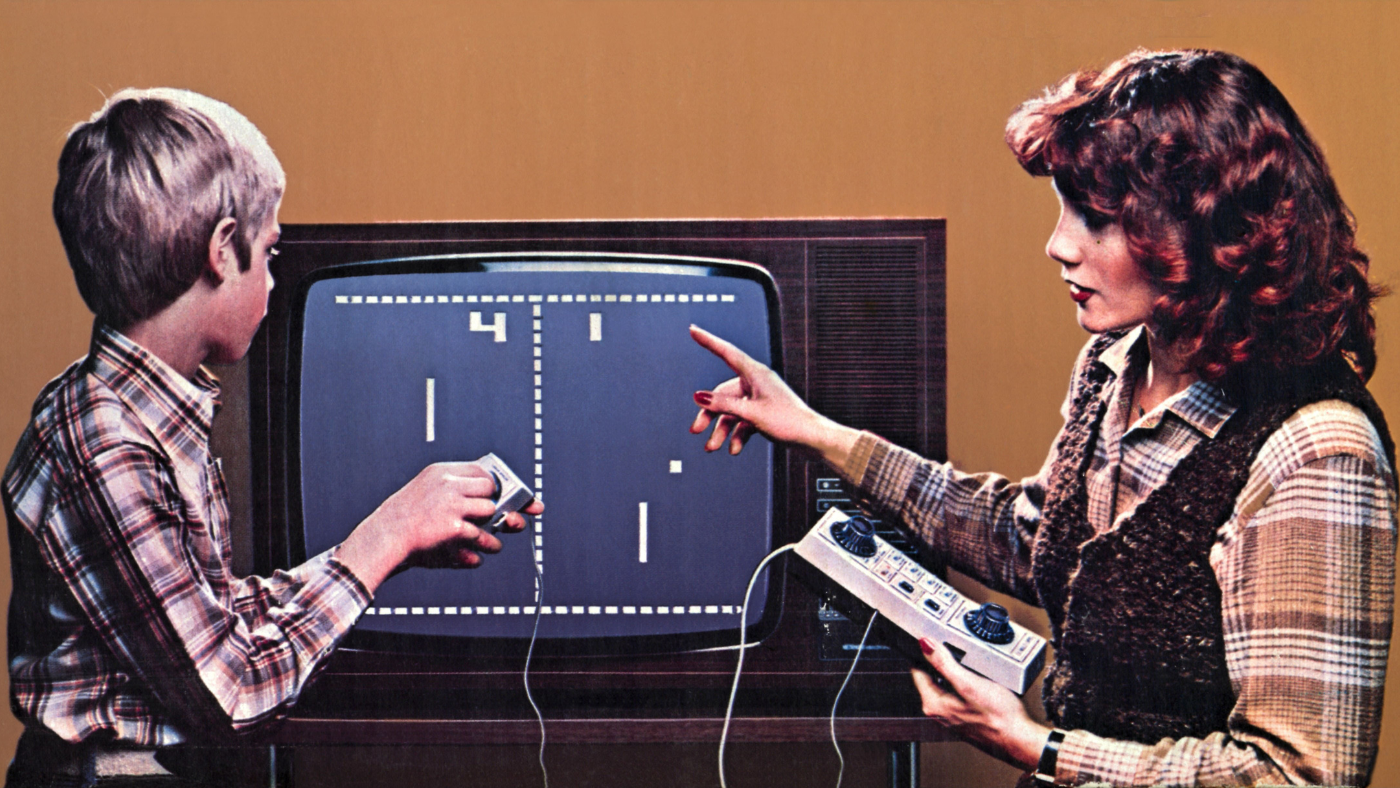 Pong at 50: the video game that ‘changed the world’
Pong at 50: the video game that ‘changed the world’Under the Radar Atari’s breakthrough invention remains a ‘touchstone’ in the history of gaming